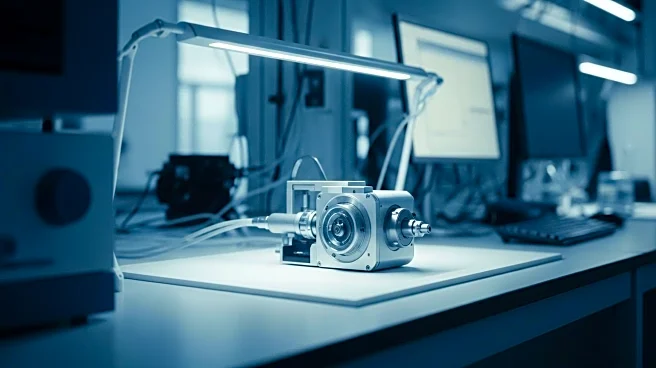What is the story about?
What's Happening?
Researchers at the Massachusetts Institute of Technology (MIT) have developed a refined method of gene editing known as prime editing, which significantly reduces errors in DNA modification. This advancement involves altering key proteins that drive the editing process, resulting in a more precise edit with fewer unwanted mutations. The new approach lowers the error rate from one in seven edits to about one in 101 for common editing types, and from one in 122 to one in 543 in more precise modes. This improvement is expected to make gene therapy safer and more practical for treating a wide range of diseases. The study, led by Koch Institute research scientist Vikash Chauhan, was published in Nature and funded by several institutions, including the National Cancer Institute.
Why It's Important?
The enhancement of prime editing technology is significant for the field of gene therapy, as it offers a safer and more effective method for correcting genetic mutations. This could potentially address hundreds of genetic diseases by directly correcting mutations in cells and tissues. The reduction in error rates minimizes the risk of unintended consequences, such as tumor growth, making the technology more viable for clinical applications. The development also holds promise for research labs, where genome editors are extensively used to study tissue development, cancer cell evolution, and drug responses. The broader application of this technology could lead to breakthroughs in personalized medicine and targeted therapies.
What's Next?
The MIT team is focused on further improving the efficiency of prime editors by modifying Cas9 proteins and RNA templates. They are also exploring methods to deliver these editors to specific tissues, addressing a longstanding challenge in gene therapy. The researchers hope that other labs will adopt the new prime editing approach in their studies, potentially leading to new insights in various fields of medical research. As the technology becomes more integrated into research workflows, it could accelerate the development of novel treatments and enhance our understanding of genetic diseases.
Beyond the Headlines
The ethical implications of gene editing continue to be a topic of discussion, particularly concerning the potential for unintended genetic modifications. As precision in gene editing improves, it is crucial to consider the long-term effects and regulatory frameworks needed to ensure safe application. Additionally, the cultural acceptance of gene therapy may evolve as the technology becomes more reliable and accessible, potentially shifting public perception and policy regarding genetic interventions.
















